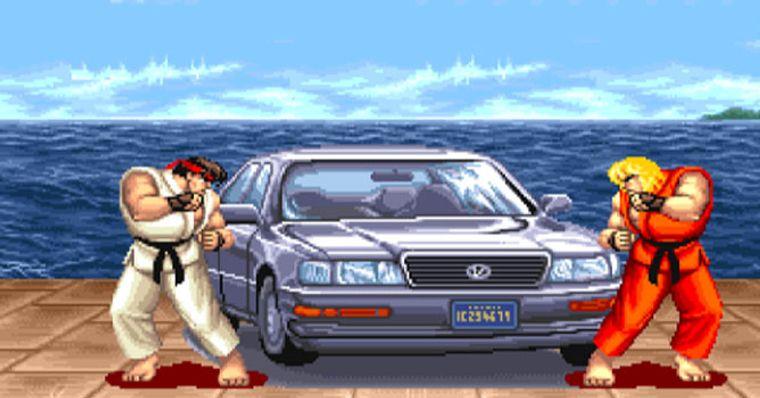
Ryu and Ken, brothers-at-arms, grew up and trained together in the same fighting style from early childhood. Yet their fighting styles ended up being quite different, each one adapting their style to match their personality.
Ryu is introverted, thoughtful, and a bit of a loner. He’s cool, calm, and collected, and his fighting style reflects that. He focused on developing his fireball, enabling him to wear the opponent down from a distance, and frustrate them. Then when the moment is right, he moves in with a devastating counter-attack.
Ken is extroverted, loud, and loves the limelight. He’s an aggressive hothead, and his fighting style reflects his personality too. He focused on developing his dragon punch. Ken is a rush fighter, he gets in close, overwhelms the opponent, and then hits them with his powerful close range attacks.
In each case, the fighters went with the grain of their personality, rather than against it (by the way, yes, I am aware that the changes happened in the games first, and were retconned into their history. It’s the lore I’m talking about here :)). If either of them had tried to fight in the others’ style, they wouldn’t reach their potential.
They succeeded because they focused on improving their strengths, rather than trying to round out their weaknesses.
This turns out to be pretty good life advice.
Strengths at work
The Gallup Organisation did a huge study involving over 2 million people in different professions. They found that the highest performers had shaped their working life around their strengths. Rather than figuring out their weaknesses and “rounding them out”, they figured out their strengths and made them even better.
Our strengths seem to be our areas of greatest potential. It sounds counter-intuitive, but there’s more room to grow in the things we’re naturally good at, as opposed to the things we’re naturally weak at.
On top of that, Gallup also found that people enjoyed their work more when it involved their strengths. They got into the flow state more easily, and were more motivated to do these types of tasks.

What is a strength?
When I say “strength” here I’m not talking about an actual task – like playing guitar, computer programming, or writing. I mean the underlying traits that make you good at that task. So for computer programming, that would be things like problem solving, analytical thinking, ability to focus, and so on. For writing it would be creativity or being “good with words” more generally.
How do you identify a strength?
If you want to know what you’re own strengths are, there are a couple of approaches you can try:
1) Self-reflection
What things are you naturally drawn towards doing? What would you do with your spare time if there was no external pressure whatsoever to do any particular thing? And what are the psychological, mental, or personality traits that are “activated” by that thing?
Is there anything you’ve ever just “taken to”? Is there anything you’ve enjoyed right from the first try, and it felt natural to you? Is there anything you’ve found you could learn relatively quickly? What strengths underpin these things?
What do you enjoy? What gives you a feeling of energy? Is there anything that makes you feel “lighter” at the thought of doing it? These things may involve your strengths. If something makes you feel “heavier” at the thought of doing it, it likely involves your weaknesses.
2) Take a test
There are a number of tests you can take based on empirical models of strengths. You can do the one Gallup used in the study I mentioned earlier (this one is not free). There’s one over at the VIA Institute of Character (free – if you only do one, make it this one, but I recommend doing a few to compare the results), and there’s also the High-Five Test.
What about weaknesses? Do I just ignore them?
Nope! I don’t want to paint a picture where you ONLY work on your strengths. It’s important to know what your weaknesses are, and if they are holding you back, then yes, you should deal with that somehow.
The obvious way is to just put some time into developing them, but you can also work around them, use systems/technology to counteract them, or work in a team where your weakness is balanced out by other people’s strengths.
But the point is to identify your strengths, and chart your path according to them. Once you’re on this path, you can deal with weaknesses if they are getting in your way. If not, then don’t worry!
So which way will you go – fireball or dragon punch?



